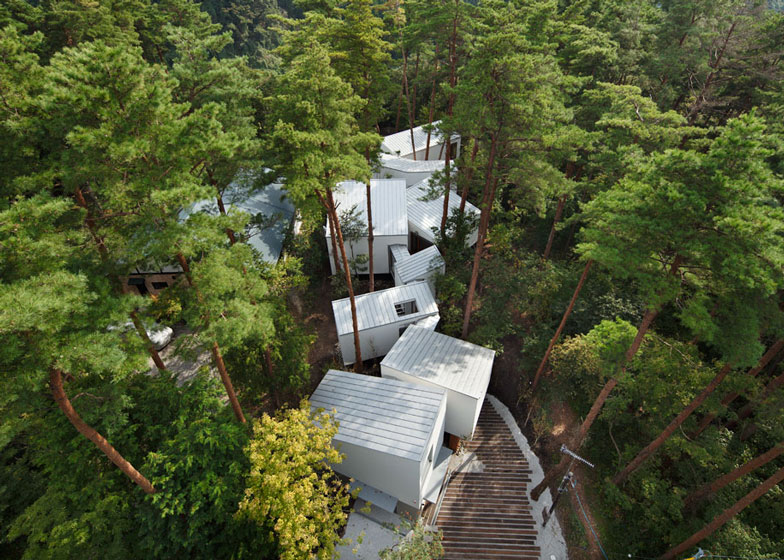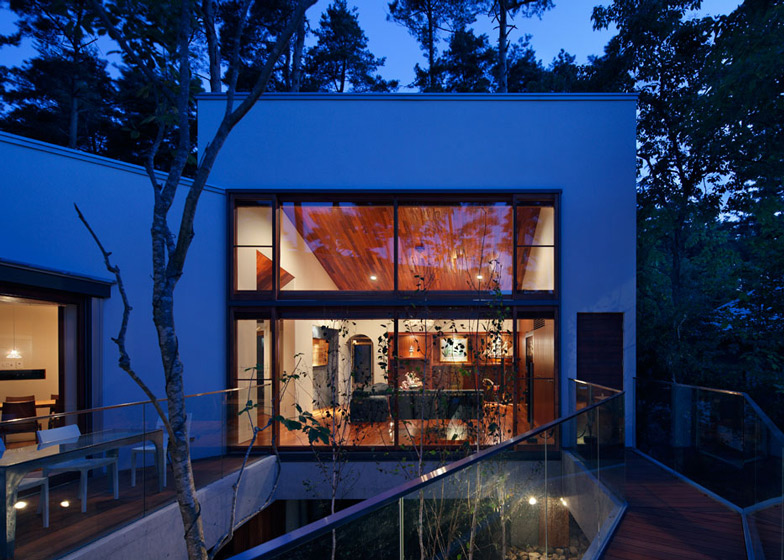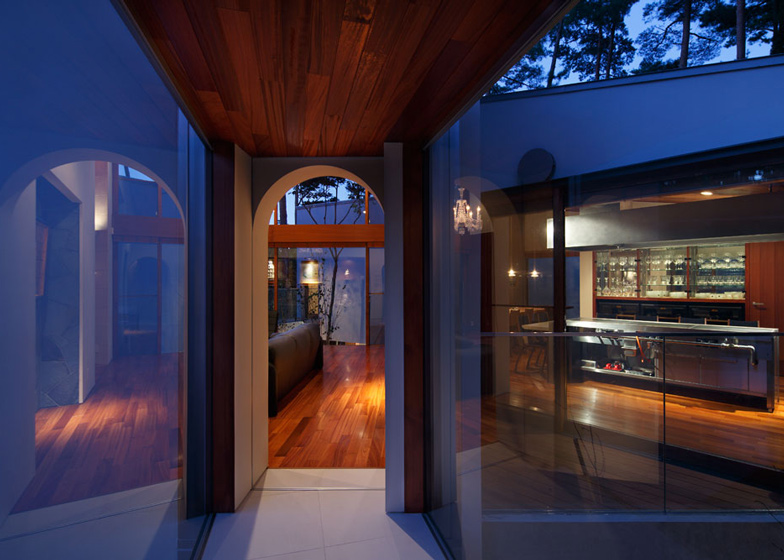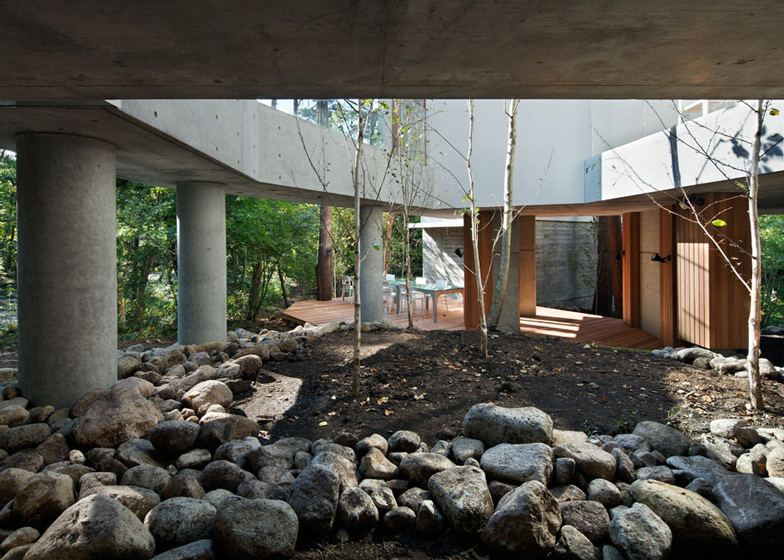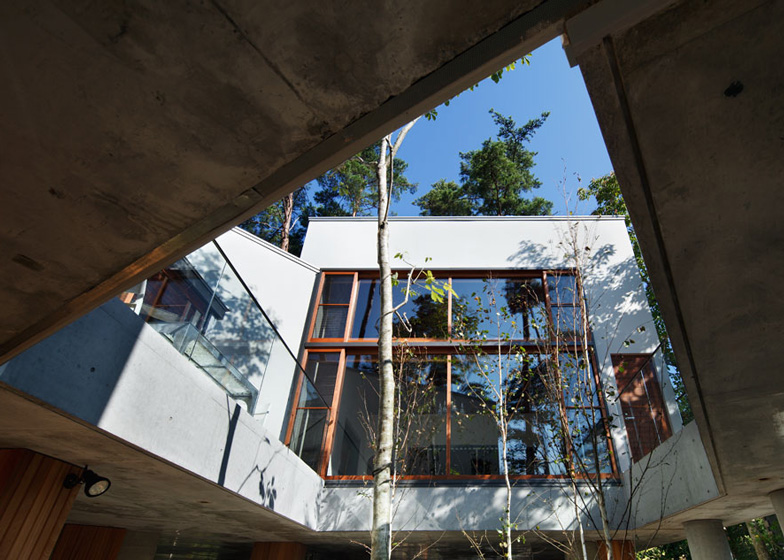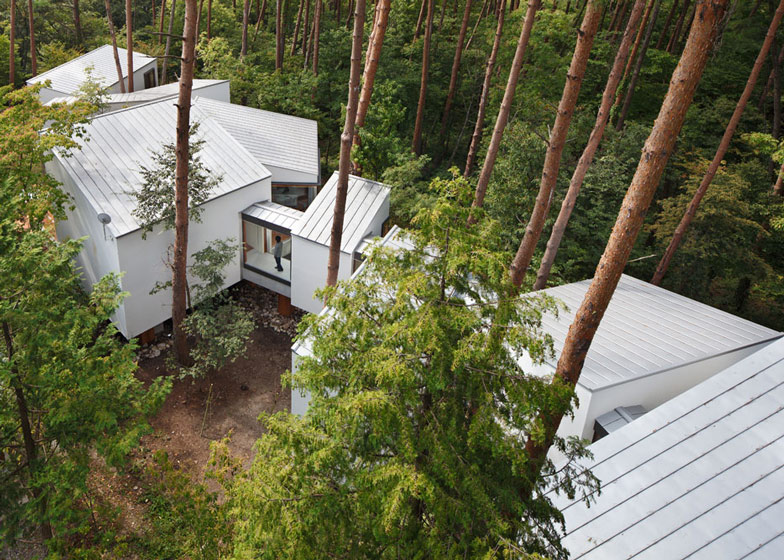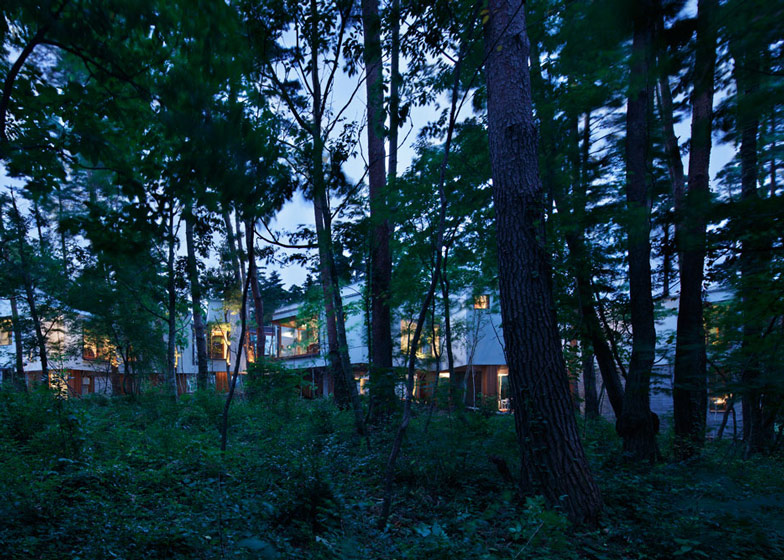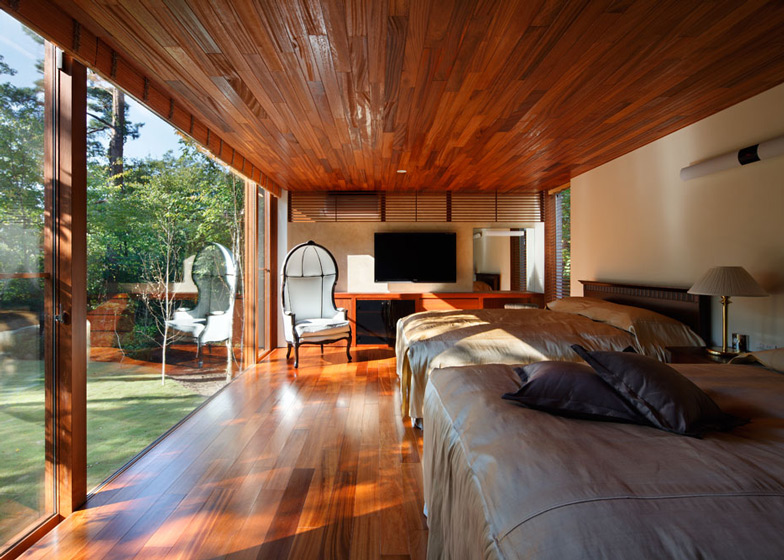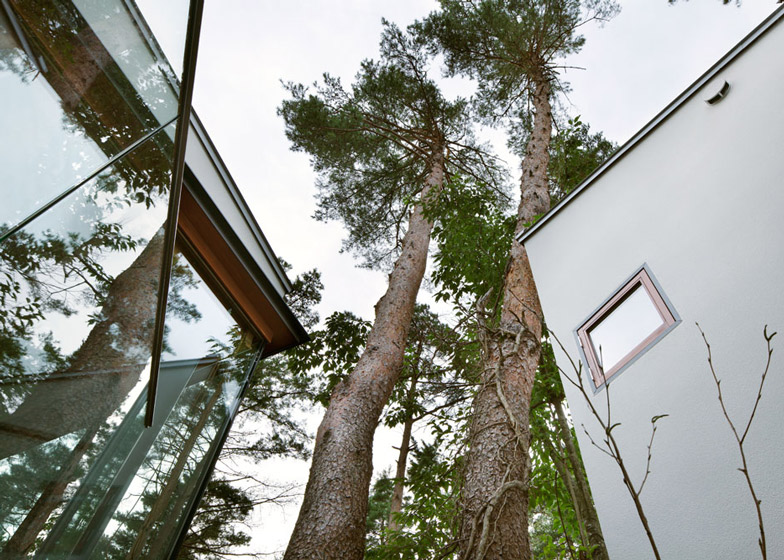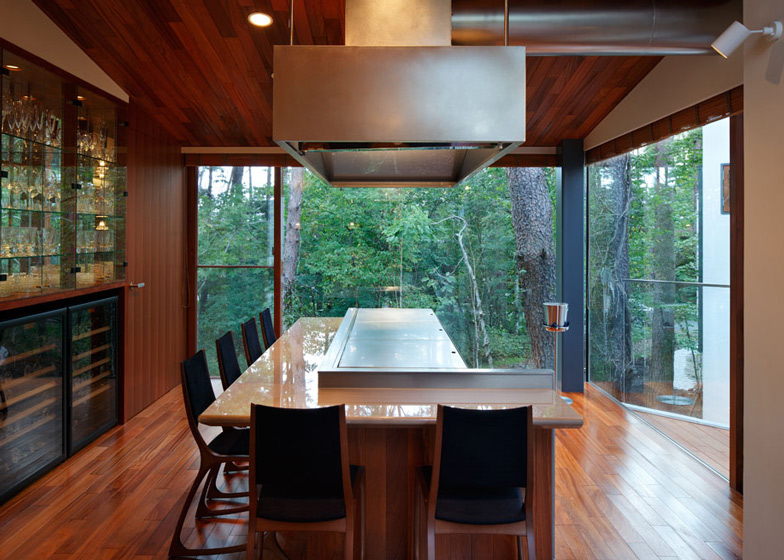This guest house consists of interconnected boxes that meander between the trunks of cherry and pine trees in a forest near Yonago City, Japan (+ slideshow).
Architect Keisuke Kawaguchi designed the house to fit into gaps between the existing trees, taking advantage of the available space without disrupting the natural surroundings.
"Sensitive dialogue with the site is requisite to building a house that lies in coexistence with nature," says Kawaguchi. "Our building plan was drafted according to this idea."
Roofs pitched at different angles squeeze beneath tree branches and add to the building's staccato aesthetic, while short corridors link the functional spaces.
The largest volume contains a living space with double-height windows looking out onto a series of terraces and the forest beyond.
The house is raised off the ground on pillars to prevent snow from drifting against it in winter, and to stop moisture and heat from the ground penetrating the floors in summer.
Other architecture projects built in forests include a series of woodland cabins in Portugal, a tiny folly that pokes out from between trees at the edge of a pond in England, and a raised walkway that winds around tree trunks in an Estonian forest.
We recently created a Pinterest board with all our stories about Japanese houses, including one comprising five connected cottages in a forest and another with two trees installed in its living room.
Photography is by Koji Fujii.
Here's some more information from the architect:
This is a guest house located in the forest of Daisen piedmont, Yonago City, Tottori Prefecture.
The house site is situated in the midst of abundant cherry and pine trees, standing at natural well-balanced intervals with trunks reaching towards the sky with bountiful leaves. The figures of the trees are beautiful. They are the legitimate habitants of the forest.
Sensitive dialogue with the site is requisite to building a house that lies in coexistence with nature. Our building plan was drafted according to this idea.
We arranged the house with most surrounding trees untouched and ensured the living space in the aperture to a maximum extent.
A style coexisting with the forest is the keystone of our design, so we carefully surveyed and analyzed the lot for building, and designed a way to connect each function space of the house by short connecting passages.
Differently-pitched roofs snuggling up to the extension of branches and foliage made it possible to take in sunlight effectively.
In Daisen we have almost two metres of snowfall in winter, so we adopted a piloti style with living spaces on the second floor in order to allow ample cross-breeze, while also reducing moisture and heat rising from the ground in summer. These considerations made it possible to maintain comfortable living conditions in all seasons.
The forms and colours of the forest seen from each room are as deep as the eye can see. Bright (red), tangible (white), obscure (blue), dark (black) – we may call them the colours of the day.
The changing seasons create a bountiful, colourful composition! How satisfying is the abundance of passing time that the forest beats when living in this house!
Even after the house completes its life in the future, the forest around it would continue on.
Finally, our primary endeavour, coexisting with the forest, would be fulfilled.

